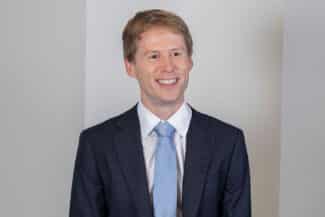Technical primers where infringement/ essentiality/ equivalents case involves complex technology
Mitsubishi & Sisvel v OnePlus & Xiaomi [2021] EWHC 1639 (Pat)
22.06.2021

This article was first published in Kluwer Patent Blog, June 2021.
On Wednesday 16 June 2021, Mr Justice Mellor handed down his judgment in the second technical trial in the Mitsubishi & Sisvel v OnePlus & Xiaomi proceedings ([2021] EWHC 1639 (Pat)), holding that the patents in suit were valid and essential to the LTE standard.
The proceedings had been brought in an attempt to persuade the defendants to take licences to a pool of patents administered by Sisvel (referred to as ‘the MCP Pool’) which were alleged to be essential to various telecoms standards. The two patents in suit (one of which was a divisional patent) related to the use of pilot signals to request uplink resources in a telecommunications network and were alleged to be essential to the transmission of scheduling requests on the uplink control channel in LTE. The judgment is a mammoth 85 pages long and deals with issues of essentiality and validity based on lack of inventive step and added matter.
The arguments raised were very facts specific and many of them turned on points of construction which are unlikely to be of wider interest, save perhaps for the judge’s finding at paragraphs 165 and 166 that a subsidiary claim is very frequently but not necessarily narrower than an independent claim (depending on the circumstances). What strikes this author in particular is the very large proportion of the judgment devoted to explaining the underlying technology, not just in relation to the patents and common general knowledge, but also the operation of the LTE standard. It is perhaps not surprising that Mr Justice Mellor took the opportunity in his judgment to issue some guidance to practitioners regarding the provision of technical primers in future cases.
The judge had directed at the pre-trial review that the parties produce a document on the agreed common general knowledge which he acknowledged in the judgment as being very useful. However, in this case, the technical detail required to understand the arguments on essentiality was far more complex than the subject-matter of the common general knowledge because it concerned the details of signalling in LTE. Mr Justice Mellor suggested that:
“…in future where the infringement/essentiality/equivalents case involves complex technology, consideration should be given at the PTR stage to a direction that the parties serve a document or documents setting out not only (i) Agreed CGK, with a list of CGK issues in dispute but also (ii) Agreed technical background for the infringement/essentiality/equivalents case, again with a list of technical issues in dispute. In each case the issues in dispute should be cross-referenced to the relevant paragraphs in the experts’ reports. Documents of this type will be of great assistance to any trial judge”.
It is also worth noting the judge’s remarks in relation to the conduct of counsel when cross examining experts. In this case, the judge felt that the claimant’s expert had been subjected to some unnecessarily aggressive cross examination. In particular, counsel had at one point responded to one of the expert’s answers by saying “I cannot believe that really is your evidence”. Mr Justice Mellor took the opportunity to remind counsel about their conduct and that what he or she thinks or believes about a witness’s answer is irrelevant.
The decision is likely to come as a welcome relief for the claimants who had failed to establish in the first technical trial (see [2021] EWHC 1048 (Pat) handed down in April this year) that another patent from the MCP pool was essential to the LTE standard. A trial to consider the relief claimed by the claimants, which will include a determination of the FRAND terms for licensing the MCP Pool, is set to be heard in October 2021.
For more information on the litigation work we do, see our FRAND/SEP disputes expertise page.

Matthew Raynor
Author
